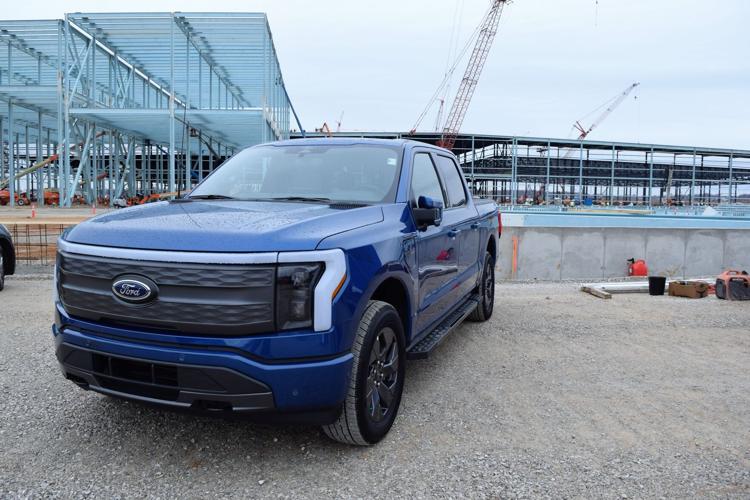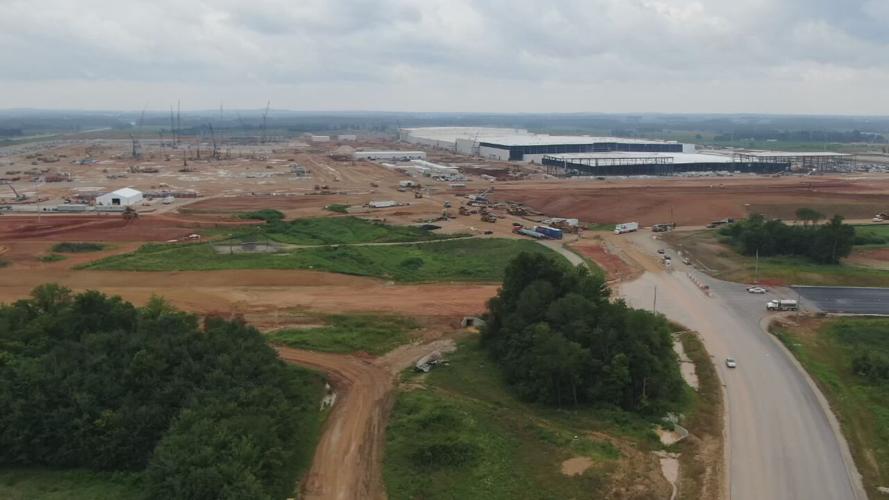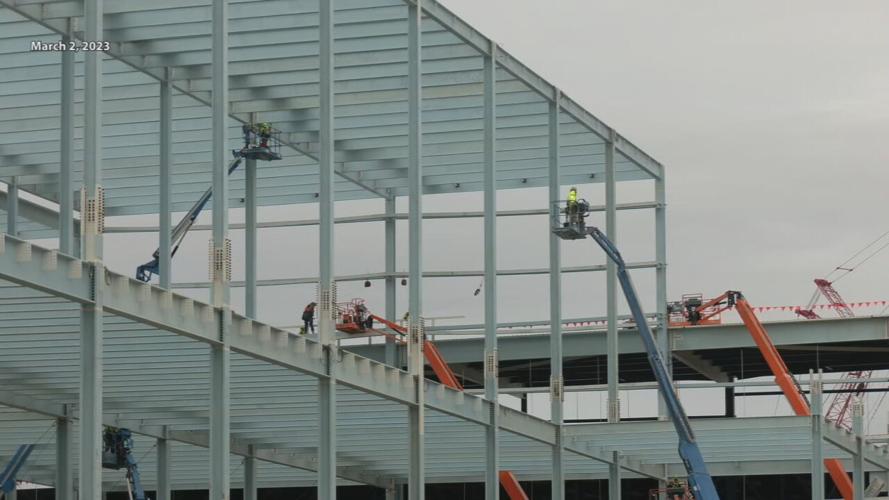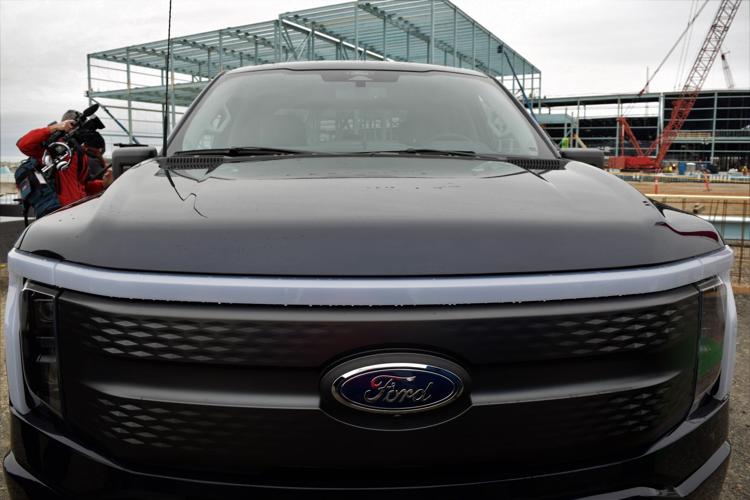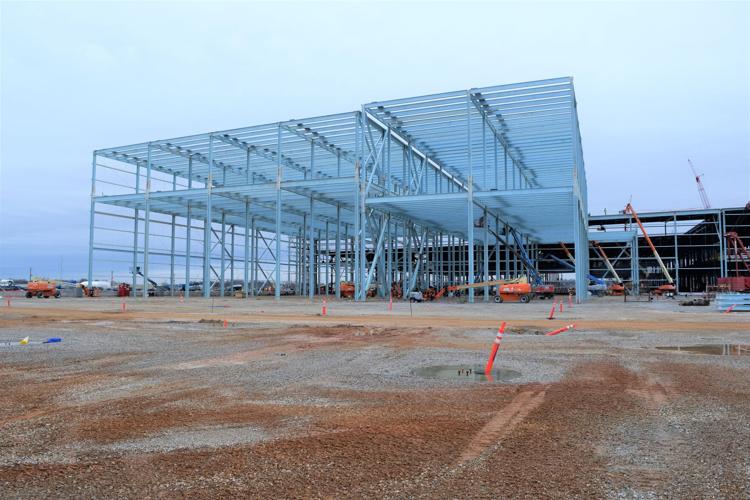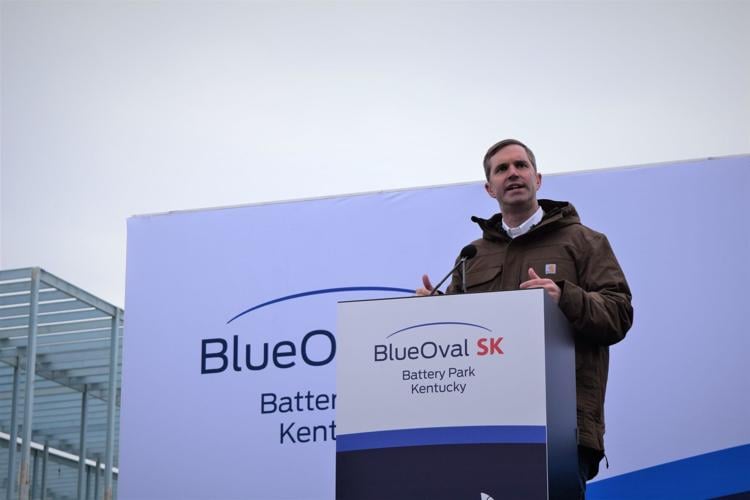LOUISVILLE, Ky. (WDRB) -- The BlueOval SK electric-vehicle battery plants in Kentucky that will supply Ford and Lincoln EVs are now hiring hourly workers, who will make up the majority of the roughly 5,000 jobs these plants will create when production starts in 2025.
Ford Motor Co. and its Korean partner SK On — the companies behind BlueOval SK — are also building an EV battery plant in Stanton, Tennessee.
BlueOval SK said the hiring process is about six months ahead in Kentucky compared to Tennessee.
Considering working at the Kentucky location? Here is what we know about the jobs:
Where are the plants?
The site in Kentucky is about 50 miles south of Louisville, directly off Interstate 65 at exit 86. It includes two side-by-side battery plants that will each employ 2,500 people.
What positions are available?
The plants are hiring production operators and maintenance technicians.
What are the basic qualifications?
For production operators, a high school diploma or GED; 18 years of age; "comfortable learning new technology."
For maintenance technicians, a high school diploma or GED; 18 years of age; "industrial maintenance certificate, journeyman card or associates degree in related field"; two years of experience in industrial maintenance environment
What do the positions pay?
Production operators start at $21 per hour. Maintenance technicians start at $26 per hour. BlueOval SK says that pay will range from $21 to $29 per hour across both positions. Operators will be eligible for up to $24, while maintenance technicians could earn up to $29.
Each position comes with "two scheduled increases in hourly wage rate each year of continuous employment," according to the job posts.
Additionally, operators may receive bonuses up to $2,300 annually and technicians may receive bonuses up to $2,500 annually based on performance, according to BlueOval SK.
What benefits are available?
"Low-cost medical premiums, 401(k) matching, Ford vehicle discounts, vision and dental insurance," according to BlueOval SK.
The plants won’t start until 2025, so what will hourly workers do before then?
BlueOval SK is bringing workers on now for training ahead of partial occupancy of the plants in 2024.
"We will begin onboarding people hired for these positions in late summer or early fall," BlueOval SK spokeswoman Mallory Cooke said. "Our first hires will work a standard 40-hour work week while they receive training and learn the battery manufacturing process."
What about the shifts? When does the job start and end?
BlueOval SK said, "Our manufacturing team is evaluating the formal shift schedule for the plants. Our first hires will work a standard 40-hour work week while they receive training and learn the battery manufacturing process. A formal shift will begin in 2024 once employees are able to partially occupy the plant."
Is the hiring first-come, first-served?
"Applications will be reviewed and acted on in the order that they are received," BlueOval SK said.
Are these union jobs?
No. The United Auto Workers union, which represents hourly workers at Ford’s automotive assembly plants, wants to make the battery plants union shops. Ford has said it will be up to battery plant workers to choose whether to unionize.
Ford competitor General Motors is also building battery plants with a Korean technology partner, LG Energy Solution. Their joint venture is called Ultium Cells. The Ultium Cells plant in Lordstown, Ohio, voted overwhelmingly in December 2022 to join the UAW.
How does the pay compare to similar jobs?
The $21 hourly starting rate is higher than the current starting rate at Ford’s auto plants, which is $18. However, about 80% of Ford hourly workers make the UAW’s top negotiated rate of $32.
Ford’s low starting wage represents a Great Recession-era concession the union made to help the company in more precarious times. It takes eight years for a new hire at Ford to reach the $32 rate. The UAW is eager to rollback the “tiered” wage system in its ongoing contract talks with the Detroit Three automakers.
The pay at BlueOval SK also appears significantly higher than the $16.50 starting rate that the UAW reported for the Ultium Cells plant it organized in Ohio. The union said that Ultium Cells workers would make "just $20 an hour ... even after seven years."
Meanwhile, a range of $21 to $29 per hour appears broadly in line with manufacturing production jobs in Kentucky. According to the Bureau of Labor Statistics, the average wage of Kentucky rank-and-file manufacturing jobs is about $24.
How did BlueOval SK decide what to pay?
The company said it contracted third-party consultants to conduct wage and benchmarking studies to determine employee pay and benefits.
"Our wages and benefits are competitive with the market," BlueOval SK CEO Robert Rhee said in a news release. "We offer high-quality jobs in a comfortable climate-controlled working environment that is safe, bright, and clean."
Elizabethtown Community & Technical College is building a training center at the battery park. Is ECTC training necessary for battery plant jobs?
No, but it could help. BlueOval SK said: “The ECTC BlueOval SK Training Center is under construction and scheduled to be complete in 2024. The training center on site is initially intended to train the 5,000 employees at BlueOval SK Battery Park. Individuals interested in studying at other schools within the Kentucky Community and Technical College Systems should visit kctcs.edu. Attending ECTC is not a prerequisite for employment at BlueOval SK. We recognize certificates from other colleges and universities as well."
Where can I find more information?
The BlueOval SK website: https://blueovalsk.com/opportunities/
Related Stories:
